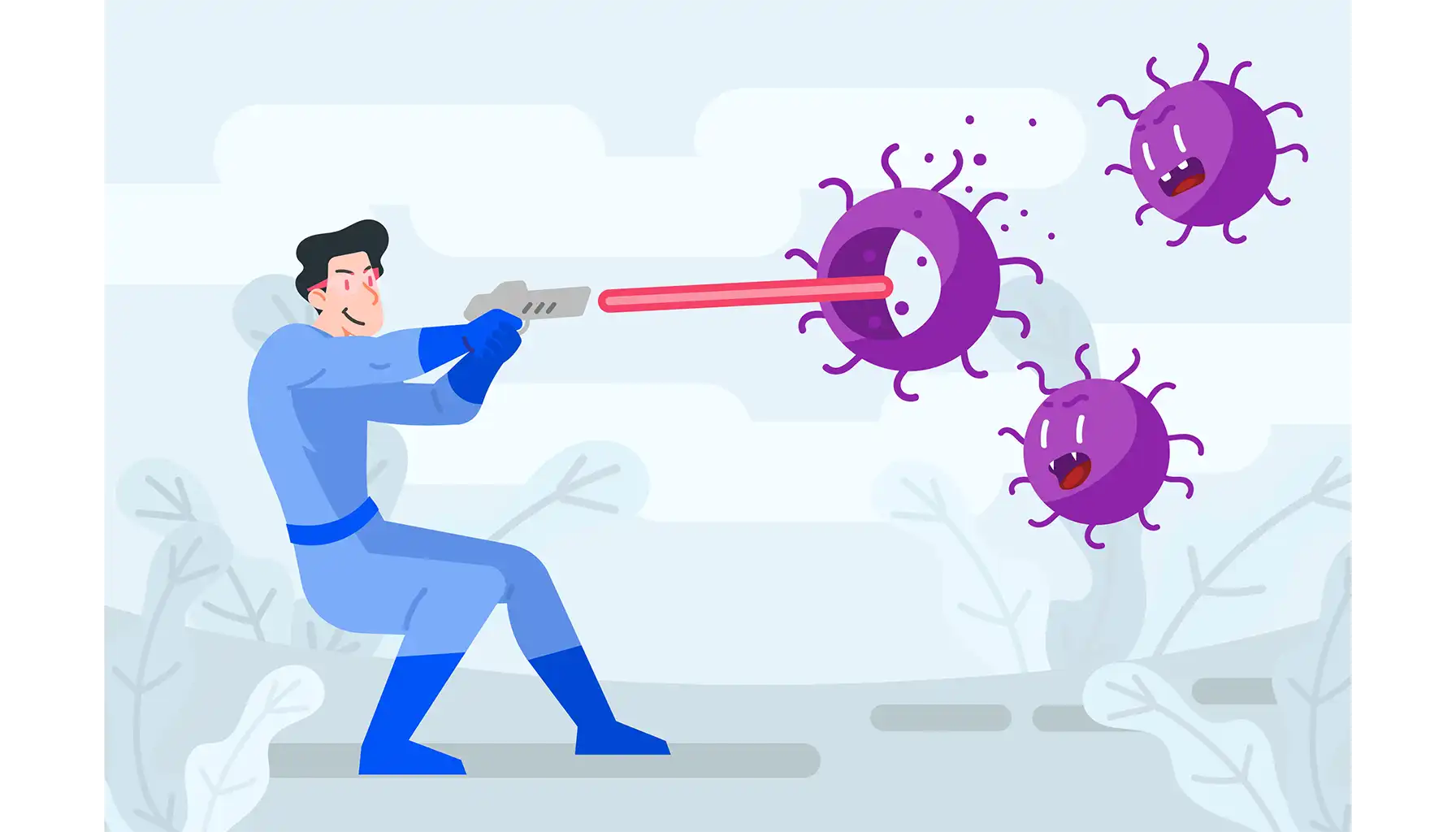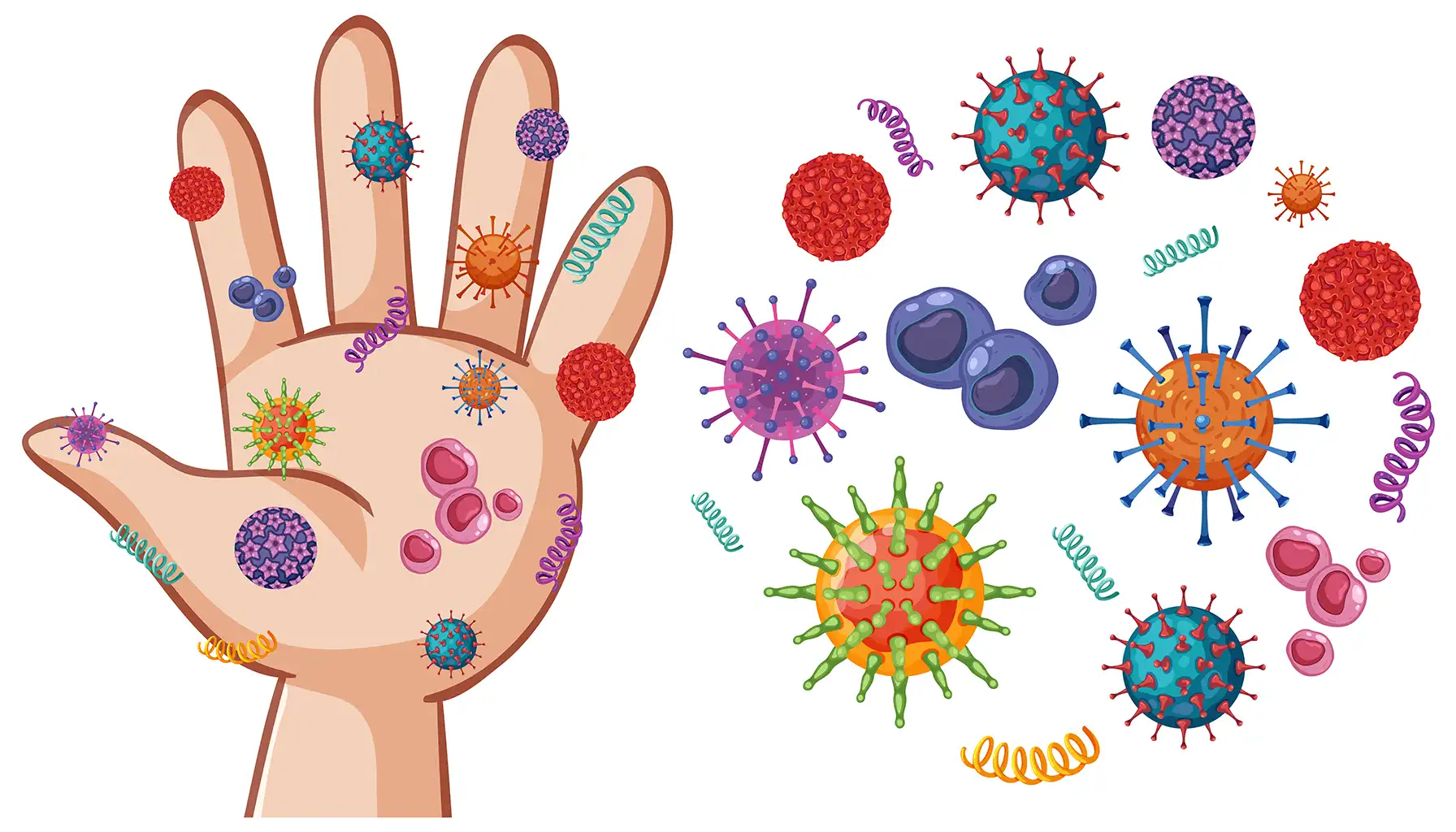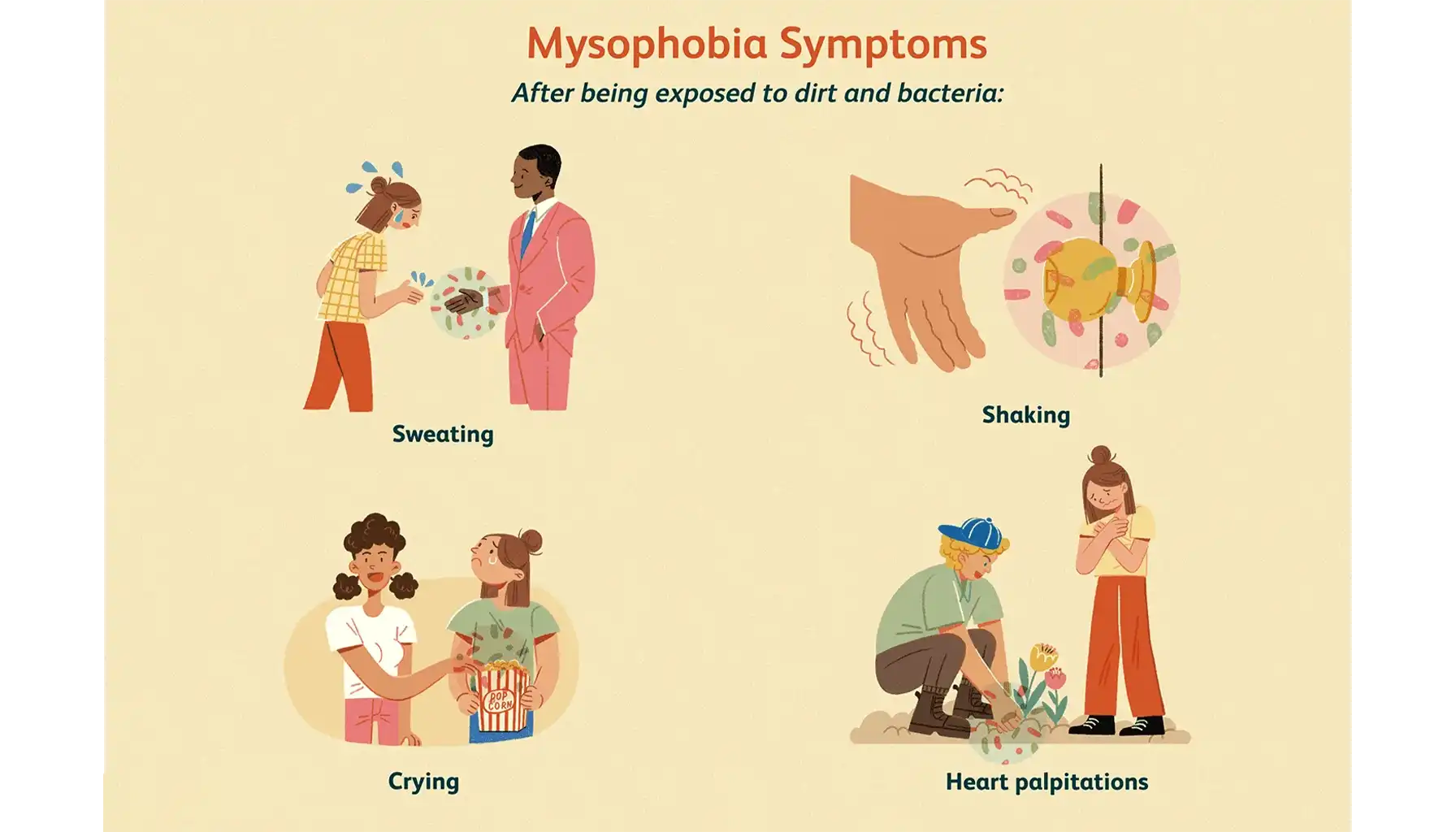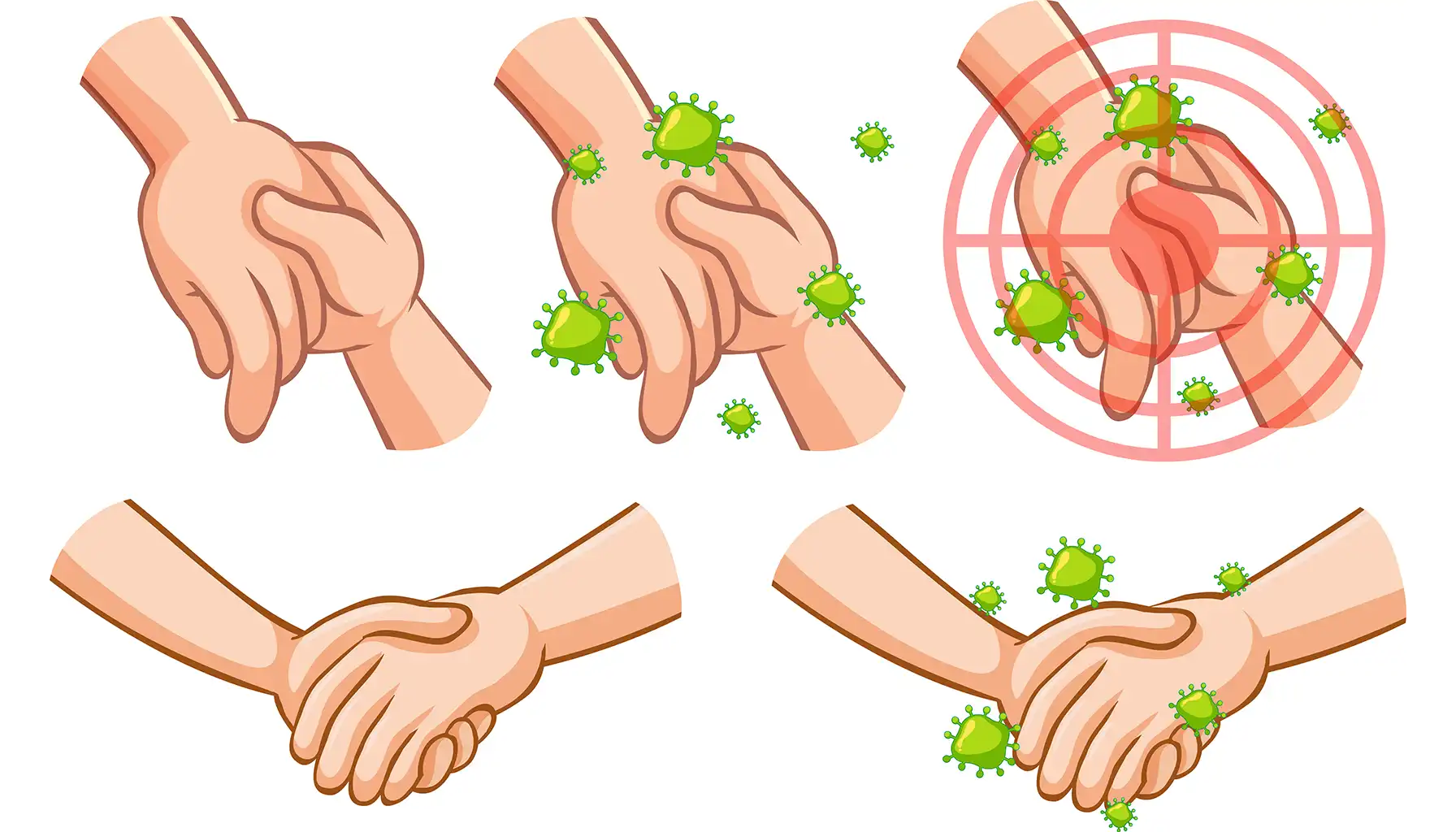What Is Mysophobia: Causes, Symptoms, and Treatment of the Fear of Germs

Are you excessively worried about germs, dirt, or contamination? Does the thought of touching public surfaces fill you with dread?
It's important to remember that engaging in mental exercises and cognitive activities for adults can often improve overall mental well-being and resilience, which may indirectly help in coping with anxiety-related tendencies.
This article is about: Mysophobia meaning, definition and other various aspects of this phobia.

Mysophobia Definition
So, define Mysophobia? It's more than just being clean or a neat freak.
It's an overwhelming, irrational fear of germs and contamination that significantly impacts a person’s daily life. It’s important to differentiate it from a general concern for hygiene.
The key differentiator is the level of anxiety and disruption it causes. Mysophobia is the fear of what? Primarily, it's the fear of illness, disease, and the potential consequences of exposure to contaminants.
How many people have Mysophobia
It's difficult to answer one number, due to underreporting, a lack of specific studies, and varying definitions.
However, given the prevalence of anxiety disorders and the link between mysophobia and OCD symptoms (which affects around 1-3% of adults).
It's reasonable to assume that mysophobia affects a notable percentage of the population, though a precise figure remains unknown.
Mysophobia Symptoms
Behavioral Symptoms | Emotional/Physical Symptoms |
Obsessive hand-washing or cleaning rituals. | Constant worry about contamination and illness. |
Avoidance of public places or touching surfaces. | Physical symptoms like sweating, rapid heartbeat, or panic attacks when exposed to perceived germs. |
Excessive use of sanitizers and cleaning products. |
If you experience these symptoms intensely and they interfere with your daily activities, seeking professional help is recommended.
Washing your hands way more often than is needed, or cleaning things over and over again, even when they're already clean. It's like you can't stop yourself from cleaning because you're so worried about germs.
Going out of your way to stay away from places where you think there might be germs, like public restrooms, buses, or crowded stores. You might also avoid touching things like doorknobs, handrails, or anything else that other people have touched.

Using hand sanitizer or cleaning wipes all the time, even when your hands aren't really dirty. It's like you need to constantly disinfect everything around you to feel safe.
You're always thinking about germs and getting sick, even when there's no real reason to be worried. It's like your mind is stuck on a loop, constantly reminding you of the dangers of contamination.
When you come into contact with something you think is contaminated, your body reacts with physical symptoms like sweating, a racing heart, shortness of breath, or even a full-blown panic attack.
What Causes Mysophobia
Mysophobia causes are complex and often multifaceted. While the exact causes are not fully understood, several factors can contribute to its development.
Traumatic Experiences | Past experiences involving illness or contamination can trigger the phobia. |
Genetic Predisposition | A history of genetic anxiety disorders or phobias in your family may increase your risk. |
Learned Behavior | Observing family members with obsessive-compulsive tendencies can contribute. |
Underlying Anxiety Disorders | Mysophobia often co-occurs with other anxiety disorders, such as obsessive-compulsive disorder (Mysophobia OCD). |
Understanding these potential causes is an important step towards effective treatment for Mysophobia.
The relationship between Mysophobia OCD is significant. Many individuals with Mysophobia also exhibit symptoms of OCD.
While not all cases of Mysophobia are linked to OCD, the obsessive thoughts and compulsive behaviors associated with OCD can manifest as an extreme fear of germs and contamination.
Celebrities with Mysophobia
There are not many celebrities with Mysophobia that speak up about this phobia. While it's a private matter, knowing that others, including public figures, may experience similar challenges can be incredibly validating and help reduce stigma.
While we can't disclose private information, many individuals in the public eye struggle with various anxiety disorders, and knowing that you're not alone is an important step in the journey to recovery. The number of people that are suffering is greater than you expect.
Mysophobia Treatment

Cognitive Behavioral Therapy
Help individuals identify and challenge negative thought patterns and behaviors associated with the phobia.
Exposure Therapy
Gradually exposes individuals to feared stimuli in a safe and controlled environment to reduce anxiety.
Medication
In some cases, antidepressants or anti-anxiety medications may be prescribed to manage symptoms.
Consult with a mental health professional to determine the most appropriate treatment for Mysophobia based on individual needs.
For example, incorporating Mind Elevate, an application featuring mini-games designed to improve various cognitive skills, could provide additional support alongside more established treatments.
The Mysophobia Test
While a formal diagnosis requires a professional evaluation, you can find online questionnaires that act as a Mysophobia test.
These tests can help you assess the severity of your symptoms and determine if seeking professional help is necessary. Online tests are not a substitute for a proper diagnosis from a qualified mental health professional.
Overcoming Mysophobia
How to overcome Mysophobia involves a combination of professional treatment and self-help strategies.
Practice Relaxation Techniques | Deep breathing exercises, and mindfulness meditation can help manage anxiety. |
Challenge Negative Thoughts | Question the validity of your fears and replace them with more rational thoughts. |
Gradual Exposure | Slowly expose yourself to feared situations in a controlled manner. |
Seek Support | Connect with a therapist or support group to share your experiences and learn from others. |
Deep breathing exercises involve taking slow, deep breaths to slow your heart rate and ease tension. Mindfulness meditation is about focusing on the present moment without judgment, helping you to detach from anxious thoughts about germs.
These techniques are like tools you can use anytime you feel overwhelmed by your fears. Ask yourself if there's real evidence to support these thoughts, or if they're just assumptions. Then, try to replace those negative thoughts with more realistic and balanced ones.
Don't try to do everything at once! Start with something small, like touching a doorknob, and then gradually work your way up to more challenging situations, like using a public restroom. The key is to do it in a controlled and safe way, so you don't get overwhelmed.
Talking to someone about your fears can make a big difference. This could be a therapist, who can provide professional guidance and support.
Or, it could be a support group, where you can connect with other people who understand what you're going through. Sharing your experiences and learning from others can help you feel less alone and more empowered.
Facts About Mysophobia

Mysophobia, like many mental health conditions, is often shrouded in misunderstanding and misrepresentation. This can lead to stigma, making it harder for individuals experiencing the condition to seek help and support.
It Is just about Being Clean
It's a debilitating anxiety disorder characterized by irrational fear and obsessive behaviors.
This often goes far beyond simply liking a tidy environment, impacting a person's ability to function normally. It's essential to recognize the severity of this condition.
People with It Are just Being Dramatic
It's a serious condition that significantly impacts a person's quality of life and requires professional help.
Dismissing it as mere drama trivializes the genuine distress and impairment that individuals with mysophobia experience. They are not choosing to feel this way.
Anyone Can Cure Mysophobia
Therapy and or medication is needed to help overcome this issue. While self-help strategies can play a supportive role, they often aren't sufficient on their own for a complete recovery. Always consult with a mental health professional.
It is important to understand that whats Mysophobia involves a deeply rooted fear that requires professional attention. If you believe you have Mysophobia, reaching out is a great start.





